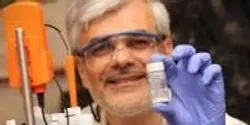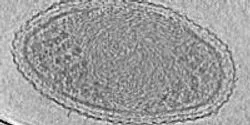Biological Sciences

Whether you're baking bread or building an organism, the key to success is consistently adding ingredients in the correct order and in the right amounts, according to a new genetic study by University of Michigan researchers.

UCLA researchers devise new method to identify disease markers, a key step toward personalized medicine.

Problem: Research into gastrointestinal diseases often presents clinicians and researchers with difficulties in terms of collecting samples from patients for analysis. The very nature of the gastrointestinal tract makes it relatively inaccessible for simple, effective sampling. Current processes require the patient to collect samples of stool, have a rectal swab taken or a tissue biopsy during endoscopy. Each of these methods is not without its problems, whether for the patient, the clinician, or the researcher.

A new provisionally patented technology from a New Mexico State University researcher could revolutionize carbon dioxide capture and have a significant impact on reducing pollution worldwide.

















